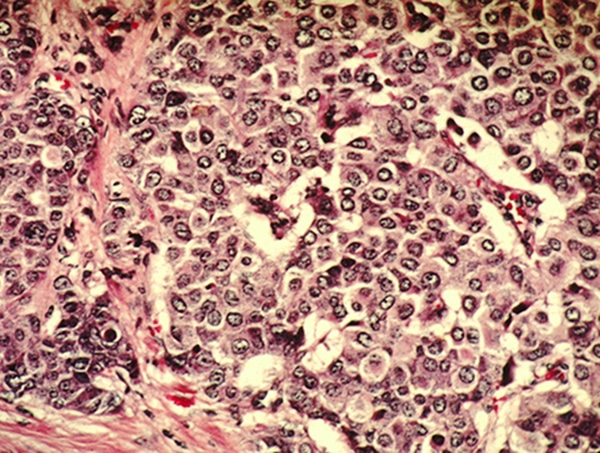PARP Inhibitor Approved as Adjuvant Treatment for High-risk, Early Breast Cancer
The FDA approved olaparib for patients with breast cancer who have inherited BRCA mutations and have received prior neoadjuvant or adjuvant chemotherapy
The U.S. Food and Drug Administration (FDA) has approved the PARP inhibitor olaparib (Lynparza) for use after surgery in certain patients with early-stage, high-risk breast cancer. Patients must be selected for olaparib therapy based on an FDA-approved companion diagnostic.
Cancer cells with BRCA mutations have defects in their DNA damage repair system and rely on an enzyme called PARP to repair their DNA and survive. PARP inhibitors are a class of targeted therapies that kill cancer cells by blocking the activity of PARP so that they are not able to repair their DNA.

PARP inhibitors were previously approved for the treatment of BRCA-mutated, locally advanced or metastatic breast cancer. The new approval expands the use of olaparib to early-stage breast cancer patients and was based on results of a double-blind, placebo-controlled clinical trial.
This trial included 1,836 patients with HER2-negative, high-risk, early breast cancer with inherited (germline) mutations in the BRCA gene who completed local treatment and neoadjuvant or adjuvant chemotherapy. Patients were randomly assigned to receive either olaparib or placebo orally twice daily for one year.
Three years after the start of the trial, the invasive disease-free survival rate—or the fraction of patients who did not experience recurrence of invasive loco-regional breast cancer, distant recurrence, contralateral invasive breast cancer, new cancer, or death—was 86 percent among patients receiving olaparib and 77 percent among those receiving placebo. The results also showed statistically significant improvement in overall survival in the olaparib arm compared with the placebo arm. In addition, patients treated with olaparib had a 32 percent lower risk of death than those treated with placebo.
According to federal statistics, approximately 287,850 breast cancer cases are expected to be diagnosed in the U.S. in 2022.
The FDA decision was rendered on March 11, 2022.
